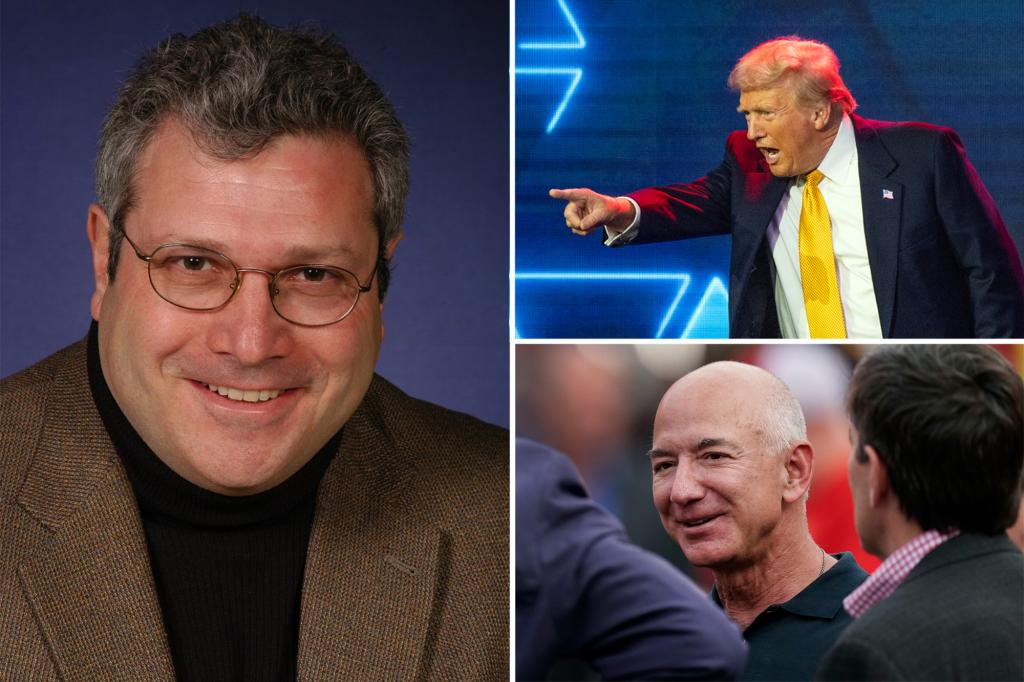The former editor of the Washington Post, Robert Kagan, has claimed that the newspaper’s billionaire owner, Jeff Bezos, made a deal with former President Donald Trump to kill the planned endorsement of Vice President Kamala Harris. Kagan alleged that Trump met with executives at Blue Origin, Bezos’s space company, after the announcement of the non-endorsement, indicating a quid-pro-quo agreement between Bezos and Trump. However, Kagan provided no proof of this alleged collusion.
Despite the lack of evidence, Kagan suggested that the relationship between Bezos and Trump had been in the works for some time and would result in censorship in the media as billionaires comply with Trump’s demands to further their own interests. Kagan resigned from his position after the newspaper announced it would not be endorsing any presidential candidate in 2024 or in future races, breaking a 36-year tradition at the paper.
Bezos, who has been a frequent target of Trump, is the second-richest person in the world and has faced scrutiny for the Washington Post’s coverage of the Trump administration. Some insiders believe that Bezos may be trying to avoid alienating the Republican challenger as he seeks to recapture the White House in the next election. Kagan warned that Trump could easily manipulate corporate leaders in the media by threatening them with financial loss.
Following the decision not to endorse a candidate, there was a backlash from both high-profile staffers and subscribers. Two thousand subscriptions were cancelled within 24 hours, leading to speculation that Bezos was behind the controversial move. However, Lewis, the publisher of the Washington Post, denied these claims and stated that he personally made the decision to refrain from issuing presidential endorsements.
Kagan continued to assert that Bezos had an ulterior motive for transforming the newspaper’s editorial slant to be anti-anti-Trump. He suggested that Bezos hired Lewis for his ability to get along with powerful conservative political figures. Despite the denials from the Washington Post’s publisher, the controversy surrounding the decision not to endorse a candidate has raised questions about the influence of billionaires like Bezos in shaping media coverage and editorial decisions.














